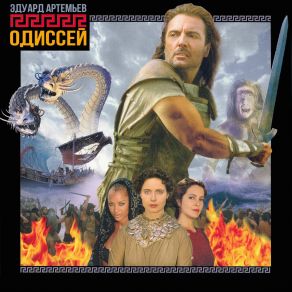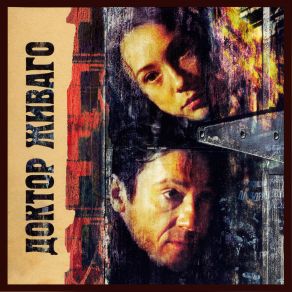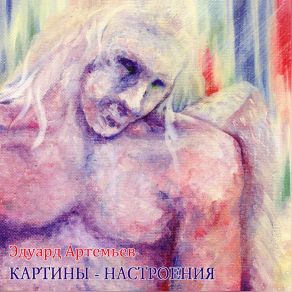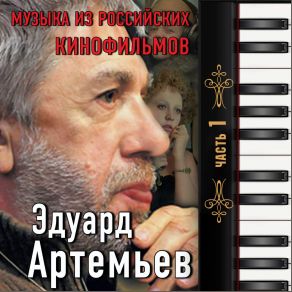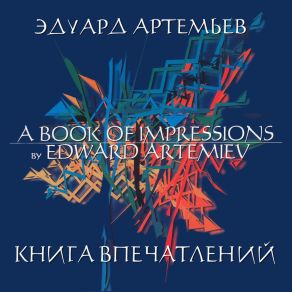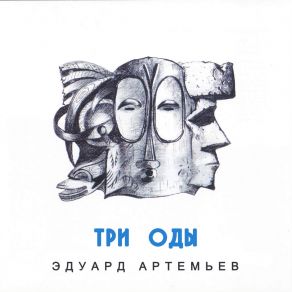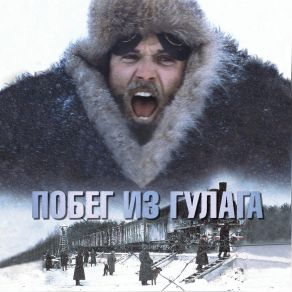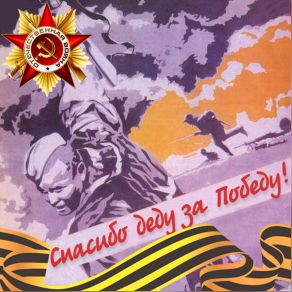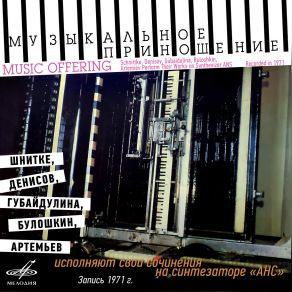Eduard Artemiev
Wikimp3 information about the music of Eduard Artemiev. On our website we have 22 albums and 1 collections of artist Eduard Artemiev. You can find useful information and download songs of this artist. We also know that Eduard Artemiev represents Rock genres.
Biography
[Edit]One of the leading composers of electronic music in Russia since the late '60s, Edward Artemiev is mostly known for his soundtracks for Andrei Tarkovsky's experimental science fiction films Solaris, The Mirror, and Stalker. He has also worked on films by Nikita Mikhalkov (Urga, Anna From 6 to 18, Soleil Trompeur), Andre Konchalovsky (Sibiriada, The Odyssey), and Hollywood productions. He has also written orchestral works and pieces fusing electronic and rock idioms. His music was hard to find during the Communist era. Since the early '90s, reissues and collections have multiplied, fostered by Artemiev's successes on the screen.
Artemiev is a classically trained composer and was a graduate from the Moscow Conservatory when he studied in Yuri Shaporin's class of composition. His career completely changed the day he met Eugene Murzin in 1960. The engineer had created a unique photo-electronic synthesizer (a machine that translated drawings on glass plates into sounds) back in 1955 and only a handful of composers had tried to explore its potential. Soon Artemiev became one of the select few. His interest in electronic music supplanted orchestral cares. His first major works were "Mosaic" (1967) and "Twelve Glimpses in the World of Sound" (1969).
In the 1970s, Artemiev worked at the Moscow Electronic Studio where avant-garde artists from many fields met to listen and discuss music. That led to his work with Tarkovsky, a collaboration that yielded some of his most-celebrated music. One of the first albums to document his music on another support than film was the soundtrack to Sibiriada (Sibériade), released in 1979 by the French ethnomusicological label Le Chant du Monde. By the end of the decade, the composer was moving a few steps away from the avant-garde. Strongly influenced by the electronic developments in rock music (progressive rock, Tangerine Dream), he invented his own personal form of "new simplicity" while trying to appeal to a new audience. The Olympic committee for the 1980 Moscow games commissioned him a piece for the opening ceremony and Artemiev wrote the cantata "Ode to the Herald of Good," which fuses orchestra, choir, rock group, and synthesizers. The piece, along with excerpts from various soundtracks, was released in 1984 on the LP Mood-Pictures by the U.S.S.R. state label Melodia — Artemiev's only domestic release before the perestroika.
The '80s saw him come back to orchestral music: quasi-symphonies ("The Seven Gates into the World of Satori"), cantatas ("The Warmth of the Earth"), and more film music. When the Communist regime crumbled and the works of the aforementioned filmmakers were reissued on home video cassettes, Artemiev's reputation grew considerably. He stopped composing electro-acoustic music after "I'd Like to Return" (1993) to focus on his opera "Raskolnikov" (from the name of Dostoyevsky's hero in Crime and Punishment), completed almost a decade later, and more film soundtracks (more than 125 by 2001). Since 1997, his son, Artemiy Artemiev, has released many of his works on his label Electroshock. ~ François Couture, Rovi
Title: The Hero (Original Motion Picture Soundtrack)
Artist: Eduard Artemiev
Genre: Theatre/Soundtrack
Title: Водитель для Веры (Мама) / Voditel dla Very (Mama)
Artist: Eduard Artemiev
Genre: Theatre/Soundtrack
Title: Богатство (Из к/ф "Богатство") / Bogatstvo (Iz k/f "Bogatstvo")
Artist: Eduard Artemiev
Genre: Theatre/Soundtrack
